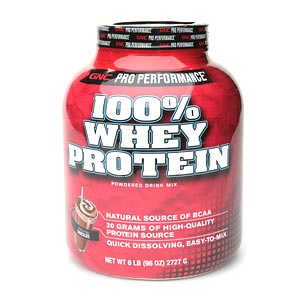 Whey is a popular supplement for people looking to build lean muscle mass. The protein is a by-product of the process of turning cow’s milk into cheese. When you use it in its purest form, as whey protein isolate, it contains little-to-no fat, lactose or cholesterol. And, if you use whey protein along with a healthy diet and fitness program, you will have a better chance of developing lean muscles and lose weight.
Whey is a popular supplement for people looking to build lean muscle mass. The protein is a by-product of the process of turning cow’s milk into cheese. When you use it in its purest form, as whey protein isolate, it contains little-to-no fat, lactose or cholesterol. And, if you use whey protein along with a healthy diet and fitness program, you will have a better chance of developing lean muscles and lose weight.
Types of Whey Protein
There are two types of milk proteins: casein and whey protein. Within the whey category, there are three major forms that are used weight loss and fitness purposes: whey protein concentrate, whey protein isolate (as mentioned above), and whey protein hydrolysate.
Whey Protein Ingredients
Whey protein is a bountiful source of branched chain amino acids (leucine, isoleucine and valine). When exercise, your body needs more branched chain amino acids, otherwise you are more susceptible to fatigue. Whey also contains bioactive ingredients, such as immunoglobulins and lactoferrin that support healthy immune system function.
Additional Benefits
Studies have found that people who supplement their exercise program with whey protein have more lean muscle tissue and lose more body fat. This is achieved because whey protein is shown to have an effective satiety effect on people. It helps reduce calorie intake, which in turn encourages weight loss. In fact, in a study conducted at the University of Surrey in England, people who ate whey consumed fewer calories than another group who ate the milk-based protein casein.
There is also evidence that supports whey as an ideal protein source for promoting healthy blood sugar levels through improved insulin sensitivity. Increased insulin sensitivity is associated with the reduction of stored fat.
People who are lactose intolerant should use a pure whey protein isolate to avoid any adverse side effects. A pure whey protein isolate has less than 0.1 grams of lactose per tablespoon, which is a statistically insignificant amount for those who are sensitive to the sugar found in milk.
Those people who suffer from lactose intolerance need to avoid whey protein concentrates, since they often have an unreliably varying amount of lactose from product to product.
(image from Wellsphere)
